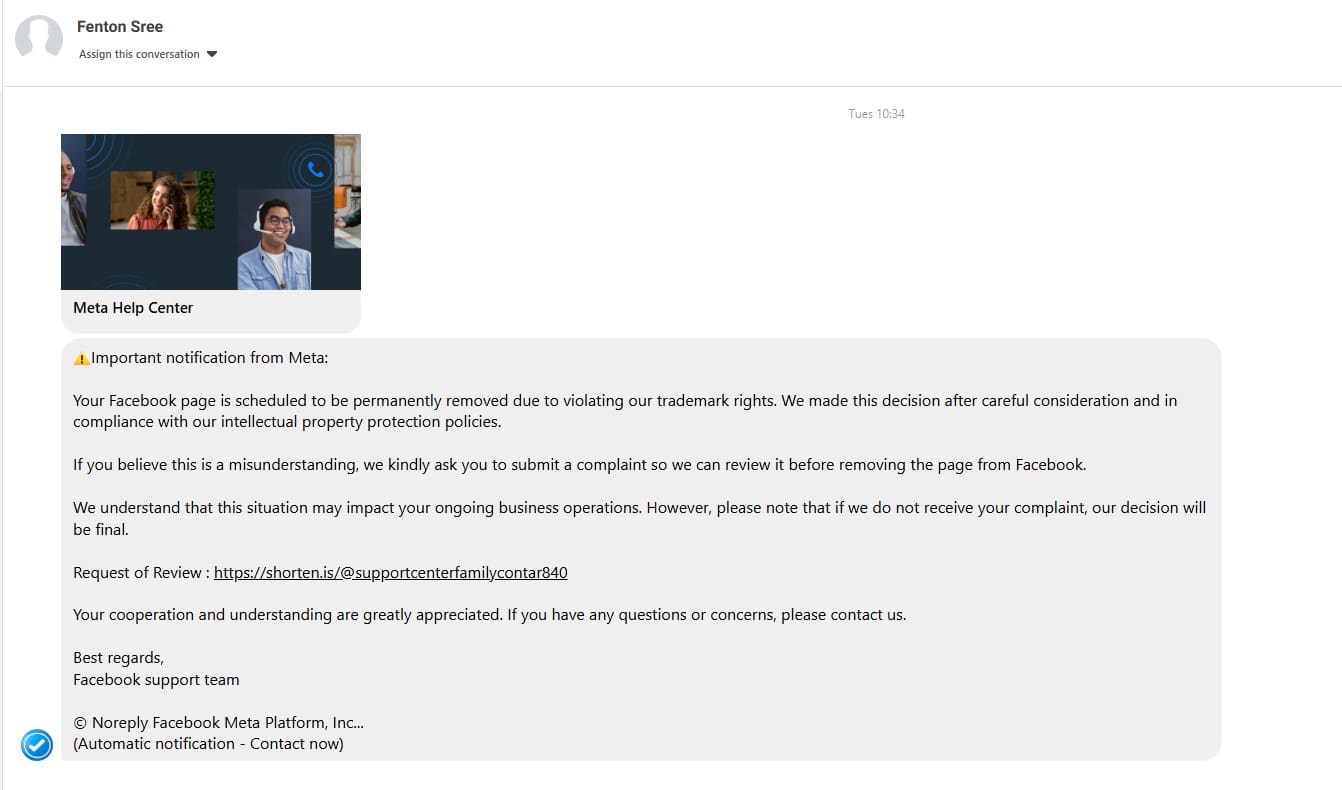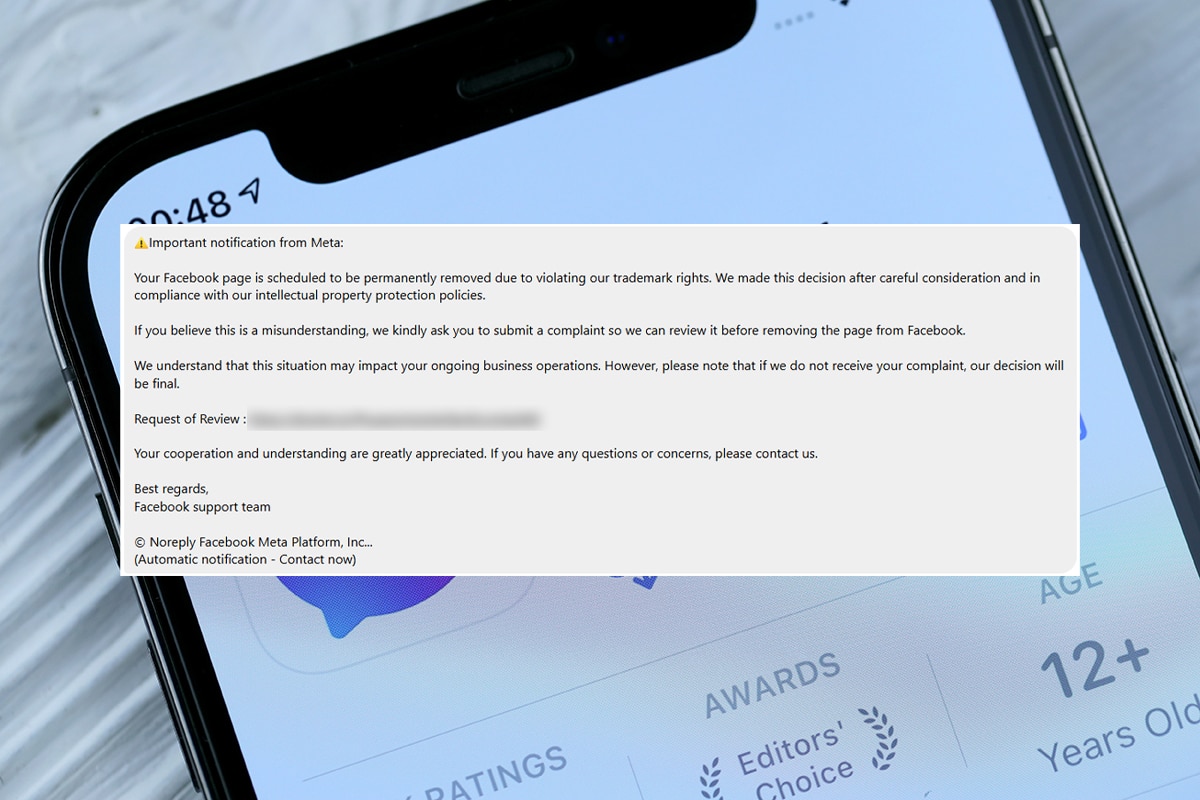🚨 Don’t Fall for Fake Meta Warnings – How to Stay Safe Online
Facebook and Messenger have become prime targets for scammers and cybercriminals who try to trick users into clicking on malicious links, providing sensitive information, or even losing access to their accounts. One of the most common scams circulating right now involves fake warnings claiming your Facebook page is at risk of being deleted. These messages are designed to scare you into clicking on fraudulent links and handing over your login details.
At Alchemy I.T., serving Stony Plain and Spruce Grove, we’ve seen countless cases of businesses and individuals falling victim to these scams. Let’s break down how these phishing scams work and, more importantly, how to protect yourself.
How the Facebook & Messenger Phishing Scam Works
These scam messages often pose as official warnings from Meta (Facebook’s parent company). They use fear tactics to make you believe your Facebook page is about to be permanently deleted due to a violation. The messages usually include a malicious link disguised as a way to “appeal” the decision.

How to Identify a Facebook Phishing Scam
1. Check the sender
- If the message is from a random personal profile instead of an official @facebook.com or @meta.com email, it’s a scam.
- Facebook does not send warnings through Messenger.
2. Look for poor grammar & awkward phrasing
- Official Meta messages are professionally written and don’t include weird sentence structures or grammar mistakes.
- Scammers often copy-paste generic text that sounds robotic or unnatural.
3. Be cautious with urgent threats
- Scammers use fear tactics to make you panic and act fast.
- Facebook will never immediately delete your account without warnings and proper appeals inside your Facebook settings.
4. Hover over links before clicking
- If the link doesn’t go to an official Facebook website (facebook.com or meta.com), it’s fake.
- Scam links often lead to lookalike login pages designed to steal your credentials.
5. Never enter your login information
- If you mistakenly click a link, DO NOT enter your username and password.
- If you did, change your Facebook password immediately and enable two-factor authentication.
What You Should Do If You Receive a Scam Message
✅ Ignore & delete the message.
✅ Do not click any links.
✅ Block the sender to prevent further contact.
✅ Report the message as spam on Facebook.
✅ Enable two-factor authentication (2FA) on your account for extra security.
If you accidentally clicked the link and entered your login info, change your password immediately and run a security checkup inside your Facebook account settings.
How Alchemy I.T. Can Help
At Alchemy I.T., we help businesses and individuals stay protected from online scams and cyber threats. If you think your Facebook account or computer has been compromised, we offer:
🔹 Security checkups & virus removal
🔹 Password recovery assistance
🔹 Safe browsing education to prevent future scams
🔹 General tech support & system tune-ups
📞 Call us today at 780-218-5771 or 780-983-6051
📍 Visit us at 203 Silverstone Crescent, Stony Plain
Stay smart, stay safe, and don’t let scammers win! 🚀
#AlchemyIT #FacebookScam #PhishingAwareness #OnlineSafety #TechSupport #StonyPlain #SpruceGrove
#108 4613 52 Ave, Stony Plain
OFFICE/STORE: T: 587-257-5595
AFTER HOURS: T: 780-218-5771
E: he**@*******it.ca
About Alchemy I.T.
We provide expert computer repair and IT support for homes and businesses in Stony Plain, Spruce Grove, Acheson, and Carvel. With more than 55 years of combined experience and over 12 years in business, our team offers trusted solutions in computer repair, virus removal, data recovery, and managed IT services.
Unlike many competitors, we provide free basic diagnostics. It’s our commitment to making technology reliable, affordable, and stress-free for our local communities.


